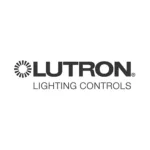Solar panels are no longer the rare rooftop feature they once were. With energy prices staying high and climate concerns growing louder, more homeowners are choosing to install them—and not just for environmental reasons. A growing body of evidence shows that solar panels can, in fact, increase your home’s resale value.
A 2023 survey by Admiral Money suggested that homes with solar installations could sell for up to 25% more, though results vary by property type and region. A more modest but still significant estimate from GreenMatch in 2025 suggested that a 2–3 bedroom home could see a value boost of 6.2–6.8%, translating to an added £866 to £4,787 depending on location. This aligns with broader property trends in the UK, where energy-efficient features increasingly influence buyer decisions.
Besides the actual sale price, solar-powered homes also tend to sell faster. Buyers are drawn to the long-term savings and future-proofing benefits. Particularly in markets like Cornwall, where solar irradiance levels are strong and there’s a cultural lean toward sustainability, solar installations can add a layer of appeal that pushes your listing ahead of similar properties without them.
The Economics: Return on Investment
While the increase in home value is certainly appealing, most homeowners are equally interested in how solar panels pay for themselves over time. The financial benefit goes beyond sale price—it’s about reducing monthly energy bills, generating income through export schemes, and even improving your mortgage terms.
Installing solar panels significantly lowers electricity costs, especially if you remain in the home for five years or more. A typical UK household with a 3–4 kWp system can save between £250 and £400 a year, depending on usage patterns and tariffs. Over a 25-year system lifespan, that adds up to serious money. Combine this with energy price inflation, and the savings grow even faster.
Thanks to the Smart Export Guarantee (SEG), you can also earn from any surplus electricity you feed back into the grid. While SEG rates vary by supplier, many homeowners are seeing consistent monthly payouts, further boosting their return. When these earnings are factored in, most systems reach payback in 9 to 12 years—often sooner in high-use or well-positioned homes.
Don’t forget the extra value added by lower EPC ratings and potential council tax savings in certain regions. The combination of reduced bills, government incentives, and improved resale appeal makes solar a financially savvy upgrade.
To explore the full range of sustainable solutions offered, view Wave Electrical’s dedicated renewable energy services here: renewable energy services.
Energy Efficiency Ratings and Buyer Appeal
A home’s Energy Performance Certificate (EPC) has a direct impact on its perceived and actual value. Buyers in today’s market increasingly use EPC ratings to gauge running costs, especially as energy prices remain unpredictable. Solar panels contribute significantly to improving a home’s EPC score by reducing reliance on mains electricity and demonstrating a commitment to sustainable living.
Higher EPC ratings can influence mortgage eligibility, help secure green home loans, and attract more serious buyers who want a long-term, cost-efficient investment. Buyers are also more likely to pay a premium for a property they won’t need to upgrade. For landlords, a better EPC can even affect rental income, with new rules likely to enforce minimum efficiency standards in future.
Additionally, homes already equipped with solar power are well-positioned for future tech like electric vehicle chargers or heat pumps—making them especially appealing to energy-conscious buyers.
Considerations When Selling a Solar-Powered Home
If you’re planning to sell a property with solar panels, there are a few legal and practical factors to think about. The first is ownership. Panels that are owned outright add direct value. If they’re leased under older “rent-a-roof” schemes, buyers may view the commitment less favourably. In such cases, mortgage lenders might also request additional documentation or conditions.
You’ll also need to disclose installation details through your solicitor during conveyancing. This typically includes system size, proof of MCS certification, warranty terms, and any SEG agreements in place. A professional estate agent should be able to advise on how to present this information to buyers positively.
Most surveyors now recognise the added value of solar when assessing a property. However, the perceived benefit may vary depending on the visibility of the panels, their age, and how well the system integrates with the home’s aesthetics.

Potential Challenges
Not all installations are equal, and a few factors could impact how much value solar adds—or even subtracts. Aesthetics are one issue. Some buyers may find older or visibly bulky systems unappealing, especially if placed on the front elevation of the home. More modern, low-profile panels help offset this concern.
Planning permission isn’t generally required in England for most domestic installations, but exceptions apply. If your home is in a conservation area, a listed building, or the panels will protrude excessively, you may need prior approval. It’s always wise to check with your local planning authority first.
You should also consider your roof type and condition. Older slate roofs or properties with limited south-facing space may not be ideal candidates. In some cases, additional upgrades—like replacing the consumer unit or adjusting your fuse box—may be needed to meet current standards.
Legal and Regulatory Guidance
Under UK law, most solar panel installations fall under Permitted Development rights, meaning planning permission is not usually necessary. However, installations must meet building regulations, particularly with respect to electrical safety and structural integrity. The key is to ensure the work is carried out by a Microgeneration Certification Scheme (MCS) accredited installer.
In addition to building control rules, solar systems must comply with standards set by G98 or G99 (depending on system size) if they export electricity to the grid. Notifying your Distribution Network Operator (DNO) is a standard part of the process and should be handled by your installer.
For a full breakdown, the UK Government’s official guidance is a trusted source of regulatory information.
Why It’s Worth the Investment in Cornwall
Cornwall stands out as one of the sunniest regions in the UK, making it especially suitable for solar generation. Homes in the South West often achieve higher energy yields than those in the Midlands or North, improving both savings and export potential.
Local property buyers are increasingly aware of this advantage. Homes with solar installations are more likely to meet buyer expectations, particularly among second-home buyers and those seeking energy independence. Some local councils even offer supplementary incentives or quicker grid connections.
For tailored recommendations or to discuss your project, get in touch with Wave Electrical Solutions via our contact page.
FAQs
Do solar panels affect mortgage applications?
They can, particularly if the panels are under a lease agreement. Lenders may request the lease terms or even require amendments before approving a mortgage. Owned systems rarely pose an issue.
Are solar panels considered a permanent fixture?
Yes, once installed, solar panels are classed as fixtures and are typically sold as part of the property. This applies unless otherwise agreed in the sale contract.
Will I need planning permission in all cases?
No, most domestic solar systems fall under Permitted Development. However, exceptions include conservation areas, listed buildings, and flat-roof installations over a certain height.
Conclusion and Practical Advice
Adding solar panels to your home is more than an eco-friendly decision—it’s a smart financial move that can deliver both short-term savings and long-term value. From improving your home’s EPC to increasing its sale appeal, the benefits are well-documented. If your roof is suitable and you plan to stay in the property for several years, the cost of installation can be recouped multiple times over.
Before committing, check for local planning requirements and choose a reputable MCS-accredited installer. If you’re based in Cornwall, local expertise is particularly valuable. Regional conditions, solar performance, and buyer preferences can all influence the final return.
For tailored advice and a quote, you can get in touch with the local experts via Wave Electrical Solutions.










